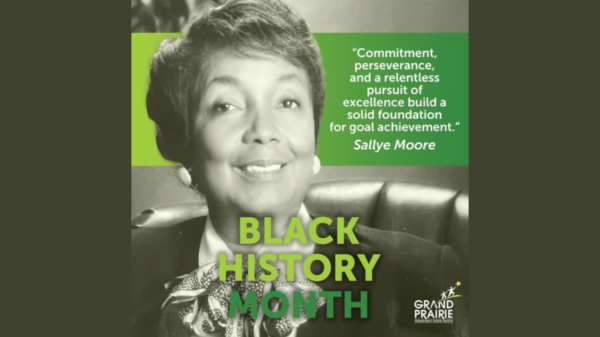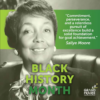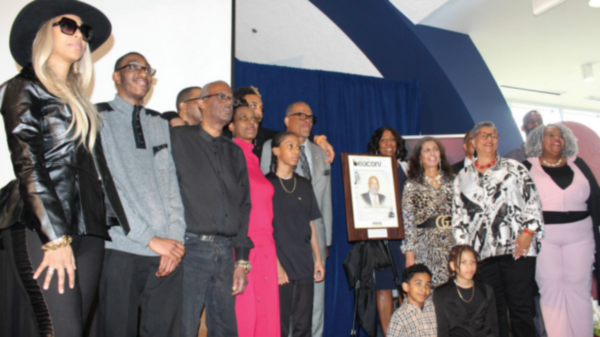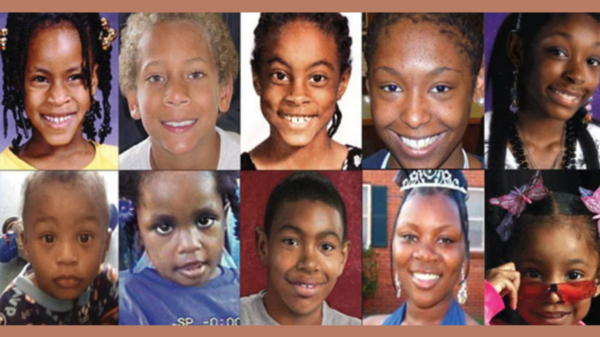
NNPA Newswire/BlackPressUSA
By Lisa Fitch, Editor-in-Chief | Our Weekly News Los Angeles
Blacks over-represented hate crime victims as domestic terrorism rises
During May’s commencement address at Tennessee State University, Vice President Kamala Harris told the HBCU graduates that in many ways, they were entering an increasingly unsettled world, but they could do something positive about that.
“I look at this unsettled world, and yes I see the challenges, but I am here to tell you, I also see the opportunities,” Harris said. “The opportunities for your leadership. The future of our country and our world will be shaped by you.”
The Vice President again expressed her concern during a recent webinar with members of the National Newspaper Publishers Association.
“I believe we are experiencing an epidemic of hate. I do believe that when we look at the boldness, the unapologetic boldness of people to speak with such hate… we have to take notice of it.” Harris told the dozens of Black press reporters and publishers.
“Let’s call it what it is. Let’s speak about it,” she said, noting that a number of elected officials across the country have tried to deny the existence of racist hate groups. “Leaders have to speak truth and speak in a spirit to unify communities, knowing we have much more in common.”
While Harris spoke, the U.S. House of Representatives’ Select Committee to Investigate the Jan. 6 Attack on the United States Capitol continued to present findings stemming from its 11-month probe.
The violent insurrection, involving a significant number of far-right extremist groups, left five people dead and opened the nation’s eyes to the magnitude of White nationalist threats.
The Department of Justice (DOJ) has charged Oath Keeper founder Stewart Rhodes and 10 other Oath Keepers with seditious conspiracy. The DOJ also charged Proud Boys leader Henry “Enrique” Tarrio and four of his lieutenants with sedition.
According to the Southern Poverty Law Center (SPLC), the Trump administration ignored warnings by the FBI and the Department of Homeland Security about the escalating threat of violent White supremacist groups such as the Oath Keepers and Proud Boys.
The SPLC believes that Trump’s lack of action has increased the danger and threat of violence from far-right extremist groups and individuals.
This year, the center’s March report, “The Year in Hate & Extremism 2021,” revealed that hate and anti-government extremism have gone mainstream, infecting the national and political dialogue. The report identified 733 hate and 488 anti-government groups actively operating across the nation.
“Hate and extremism in America has not diminished,” the report states. “Instead, it has coalesced into a broader movement that is both threatening our democracy at the community level and embracing violence as a means to achieve White supremacist goals.”
Faith groups across the country marked the seventh anniversary of the racially-motivated massacre at Charleston. S.C.’s Mother Emanuel African Methodist Episcopal Church.
The commemorative Bible study event began June 17, the day nine parishioners lost their lives in an act of hate and violence. It’s theme, “What Kind of Soil Are We?” was taken from the Bible passage studied on that tragic night.
Mark 4:1-20 is commonly known as the Parable of the Sower, and alternatively as the Parable of the Soils. Christians across the nation used the commemorative event to analyze the parable and discuss, “What kind of soil are we? What kind of soil is God calling us to become?”
“Seven years after the domestic terrorist attack at Mother Emanuel AME Church and as the nation mourns the innocent lives lost in recent attacks in Buffalo, New York and Uvalde, Texas, we find ourselves in the same quagmire,” said House Majority Whip James E. Clyburn (D-S.C.).
“This national Bible study is much needed and allows the nation to turn the mirror on itself,” he added. “What kind of soil are we if we cannot or will not protect the lives of students in school and parishioners in their places of worship? We must not allow the threads that hold the fabric of this great country together to become unraveled by appalling silence.”
Racist conspiracy theories often hide in plain sight
Derrick Johnson, NAACP president & CEO, had some words after the May mass shooting in Buffalo:
“As we join the millions across America mourning the lives and unnecessary deaths of the 10 people murdered at Tops Market on Saturday, we stand before you with a clear message: White supremacy and democracy cannot coexist. The domestic terrorism and violence perpetuated by those espousing White supremacist ideologies attacks the very foundations of our nation,” Johnson wrote.
“Battling the terrifying rise in racist hate crimes, bigoted rhetoric from politicians and pundits, and online radicalization MUST be made a priority by our nation’s leaders,” he added.
Recently, U.S. Senator Alex Padilla (D-Calif.), a member of the Senate Judiciary Committee, questioned witnesses at a hearing titled “Examining the ‘Metastasizing’ Domestic Terrorism Threat After the Buffalo Attack.” During the hearing, Padilla spoke about the alarming rise in domestic terrorism.
“America is a nation of immigrants,” Padilla said. “In America, we believe that we’re all created equal and should enjoy equal rights. So it’s deeply disturbing to me to see right-wing media figures… as well as politicians, including the former president, prompting racism, hatred, and division in the United States of America — sometimes subtly, sometimes not subtle at all.”
Padilla noted that racist conspiracy theories are often hiding in plain sight, and that reporting the spread of these theories and relevant threats of violence to law enforcement could help prevent future attacks.
“So, it’s important that we shine a light on to these frightening ideologies that fuel domestic terrorism, so we can stop the spread of violent hate,” he said.
Reporting hate crimes
Hate crimes are notoriously under-reported. A national survey by the U.S. Bureau of Justice Statistics estimated that less than half of all hate crimes were reported to the police. Other factors that may inhibit victims from reporting hate crimes include fear of retaliation, cultural and linguistic isolation, unfamiliarity with the criminal justice system, and previous negative experiences with law enforcement.
Locally, the LAPD defines hate crimes as “any criminal act or attempted criminal act directed against a person or persons based on the victim’s actual or perceived race, nationality, religion, sexual orientation, disability or gender.”
More than 42 percent of racial hate crimes targeted African-Americans. Black persons constitute 9 percent of the total population of Los Angeles County, but each year are grossly overrepresented as victims of racial hate crime. The most common criminal offense was vandalism (27 percent), followed by aggravated assault (25 percent), simple assault (20 percent), intimidation (17 percent), and disorderly conduct (7 percent).
African-Americans were again also over-represented as victims of sexual orientation (19 percent) and anti-transgender crimes (28 percent).
Crimes targeting African-Americans occurred most often in public places, followed by businesses, residences, schools, electronic communication, and government/public buildings).
Victims of a hate crime should call 9-1-1, or go to the nearest LAPD community police station. By understanding how and where hate is occurring, communities can respond with appropriate resources and support, which can include protecting your civil rights against hate and discrimination, processing trauma, beginning to heal, and doing something to prevent hate from happening to others.
It is essential to report a hate incident, which includes any act of verbal or physical aggression, refusal of service, bullying, or intimidation of any kind that is motivated by hostile prejudice.
Authorities cannot do anything to stop hate crimes and incidents unless they know about them, so that victims do not suffer in silence.
Anti-Hate Reporting Hotline
For those who have been victims of bullying or a hate motivated act, by dialing 2-1-1, they can now file a report as a victim, witness, or advocate for a victim of hate crimes, hate acts, or bullying as a part of the Anti-Hate Campaign.
The development of the 211 hate-incident reporting hotline establishes a centralized method across LA County for community members to report acts of hate and bullying, regardless of whether or not a crime has been committed.
The collection of these reports will increase data on what kind of hate incidents are occurring, where they are happening, and what populations are being targeted. With this information, a network of service providers will be able to target prevention and intervention efforts to reduce hate in the hardest hit Los Angeles’ communities.
By filing a report, a 211 LA Community Resource Advisor will be able to provide social service referrals, and with permission, share information to aid in future prevention efforts. Reporters will also be offered optional follow up from a 211 Care Coordinator to help them connect with support services. Reports may be filed anonymously and are not shared with law enforcement.
For those who prefer to report online, an online reporting form is available at https://211la.org/la-vs-hate.
Since 1980, the Los Angeles County Commission on Human Relations has compiled, analyzed, and produced an annual report of hate crime data submitted by sheriff and city police agencies, educational institutions, and community-based organizations. This report is one of the longest-standing efforts in the nation to document hate crime.
Using information from the report, the commission sponsors a number of ongoing programs related to preventing and combating hate crime, including the Network Against Hate Crime and the LA vs Hate Project.
There were 635 hate crimes reported in the County in 2020, a 20 percent increase from the previous year. According to the commission, there was explicit evidence of White supremacist ideology in 19 percet of all hate crimes.
According to SPLC President and CEO Margaret Huang, steps need to be taken to stem the rise of hate crimes:
“We must fund prevention initiatives to steer individuals away from hate and ideologically motivated violence,” Huang said. “Stopping extremism in our country must be a holistic effort involving not just law enforcement, but also parents, caregivers and educators.
“We must ensure that everyone – and especially young people – are taught critical thinking skills and digital literacy so they can fend off misinformation, disinformation and online radicalization,” she added.
For additional information, phone the LA County Commission on Human Relations at (213) 738-2788.









You must be logged in to post a comment Login